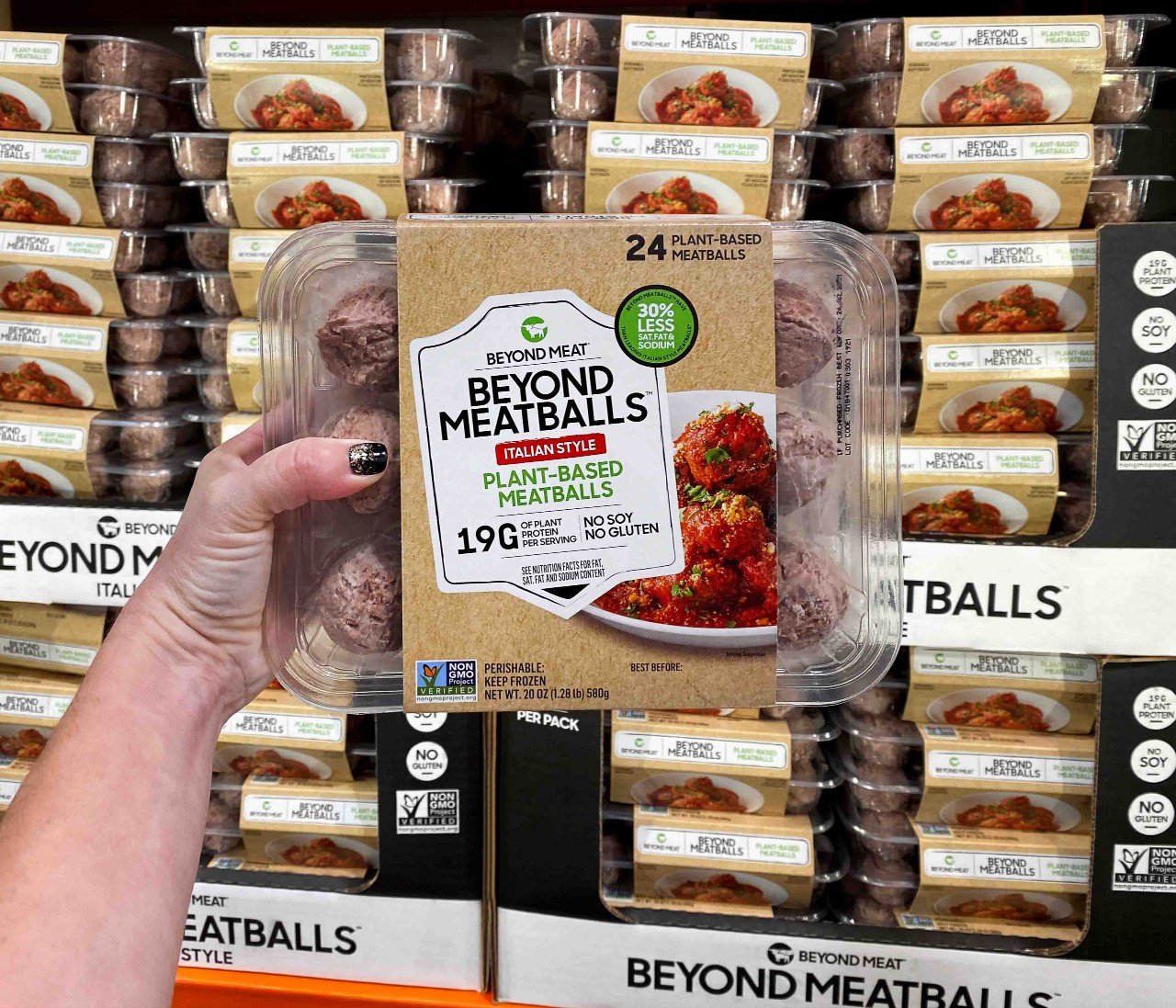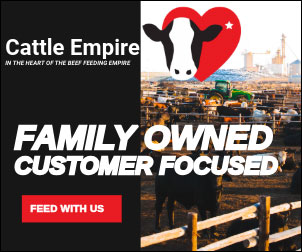Food Dive -- Megan Poinski
Looking only at earnings reports and stock prices from the past few weeks, it could appear that the once red-hot plant-based meat sector has turned ice cold.
In the past six months, plant-based burger pioneer Beyond Meat has seen its stock price crater, with trading prices plummeting about 50%. Most of that drop has been in the last week, after the company reported an increase in total year-over-year sales, but missed its earnings targets because of production issues and changes in consumer behavior.
Beyond Meat isn't the only publicly traded company to see recent problems. Canadian meat giant Maple Leaf Foods showed disappointing sales for its plant-based division during the last two quarters, and is conducting a full review. The company's Greenleaf Foods division — which includes Lightlife, Field Roast and Chao — had 6.6% fewer sales in the most recent quarter, compared with last year. The previous earnings report, released in August, saw sales in that division down 20.6% compared with a year earlier.
Kellogg's MorningStar Farms brand also has experienced a sales slowdown in the last quarter, though the amount was not quantified in the company's earnings report or presentation. In the company's third-quarter 2021 earnings call, Kellogg CEO Steven Cahillane did not think it was a matter of concern at this point because he still saw enthusiasm around the sector.
Is Cahillane's take correct and are these latest quarters just part of an expected slowdown? Or is Maple Leaf making the prudent call in examining whether the sector is worth continued investment? Analysts offered differing views.
Corey Chafin, associate partner in the consumer practice of consulting firm Kearney, sees a reset taking place in the category as consumer habits shift and the space sees more entrants.
"I think the general interest in plant-based as a category remains strong, even if the individual companies are losing share," Chafin said.
Gary Stibel, founder and CEO of The New England Consulting Group, feels differently. He's been expecting a quarter like this for plant-based meat for two years.
"It was just a matter of predicting the novelty curve," Stibel said. "When a product like this comes into the marketplace, it will attract an unusual number of curious ... triers. And if the product doesn't meet demand, doesn't satisfy the consumer, they will say, 'Hey, that was interesting,' and they won't come back and buy it again."
A crowded category
The slowdown in plant-based meat sales is tricky to process, given that the category as a whole has shown consistent growth.
Statistics — in terms of sales and consumer surveys — seem to show upward trends. Refrigerated plant-based meat sales were up 19.1% in the 52 weeks ending July 11, according to SPINS data, while frozen sales were up 9.2%. The International Food Information Council found that about two-thirds of Americans ate plant-based meat and dairy analogs in the past year, with 22% eating them daily.
But the vast majority of plant-based products are not made by publicly traded companies, meaning details of their sales — as well as losses and operational challenges — are not openly shared. (They also aren't always discussed with earnings; Conagra Brands didn't mention its Gardein brand or the plant-based sector in its most recent earnings report or call.)
Chafin with Kearney said there are several factors behind the slowdown. Consumers are transitioning from eating food at home back to restaurants, meaning there's a change in how and where they are buying things. But there are also many more players in the plant-based meat space today. So far this year, more than 40 new plant-based products have launched, he said, noting that stores only have so much shelf space available for the category.
But aside from all of the activity among plant-based CPG makers, Chafin pointed out there is a "tsunami wave" in private-label products. Earlier this year, Target created its own plant-based line under its Good & Gather brand. Kroger undertook a massive expansion of its Simple Truth Plant Based line, which had more than 75 products as of the beginning of this year, ranging from meat to dairy analogs. Though many retail companies are publicly traded, the sales performance of their private label offerings isn't always well reported.
"If you look at the category in aggregate across plant-based — inclusive of private label — it continues to grow and maintain interest," Chafin said.
Stibel doesn't see the long-term — and growing — interest in plant-based meat. He compared the category to early electric vehicles. There was a lot of excitement and hype around them at the beginning, but it dropped off as investors and consumers realized that they couldn't deliver like gas-powered cars. Plant-based meat has come a long way in recent years, Stibel said, but it hasn't come to the point where products are as good or better than those from traditional meat.
Consumer research around plant-based meat is also inherently flawed, Stibel said. It's easy for a consumer to say they want to eat healthier and more sustainably and will buy more plant-based products. What that consumer actually does at the grocery store, he said, is a different matter. Habits are less likely to change overnight, especially when plant-based products are priced at a premium. And analysts have been paying attention to the wrong numbers, he said.
"At the end of the day, they painted by the numbers by doing what research said rather than observing what people did," Stibel said.
The problem with premium prices
The higher prices for plant-based meat products could also be behind slowing growth, Chafin said. On shelves and menus, plant-based tends to be more expensive than animal-based counterparts as companies work toward a larger production scale.
Price parity with meat is a target for plant-based companies. Beyond Meat has set the goal of pricing at least one meat alternative below the cost of animal meat by 2024. In its most recent earnings call, CEO Ethan Brown said the company is on track to do it, and expects to launch products at close to price parity in 2022.
In 2020, plant-based had 2.7% market share of all U.S. retail packaged meat sales, according to SPINS data released by the Good Food Institute and the Plant Based Foods Association. Chafin said that if plant-based meat cost the same as its animal-derived counterparts, that market share would be closer to 20%. Kearney is currently researching how these costs can be brought down, and what it means for the sector, Chafin said.
The high prices for name brands of plant-based meat and the traditionally more budget friendly private label options could be contributing to the dichotomy in plant-based sales, where the category as a whole is still growing, but the brands themselves are not, Chafin said. A consumer who wants to try plant-based will likely start with a name brand they have heard a lot about, even though it may be a bit pricier than the store brand.
"I almost see the Impossible, Beyond Meats and Maple Leafs as an introductory product for folks ... and then you would trade down into your cart to the private label over time," Chafin said.
Getting back to growth
Analysts agree that the plant-based sector will start growing again. How much it will grow and which parts of the segment will see more sales remains to be seen.
Rebecca Scheuneman, an equity analyst at Morningstar who covers Beyond Meat, is optimistic about the company's future. In her most recent report on the plant-based meat giant, she gives it a positive rating, although she says there is high uncertainty.
From her viewpoint, demand for plant-based meat has not peaked and Beyond Meat is in a prime position to accelerate into massive growth in 2022. For one, she said, the company hasn't done much marketing, although it is planning a large campaign next year.
"I really do think that that will spur [and] accelerate sales," Scheuneman said. "I think that a lot of consumers just don't have a lot of the facts about all the stressors that the meat industry has for the environment, and I think that educating them will really go a long way because consumers, and especially the younger generations, are really pretty concerned about the health of the environment."
A life-cycle analysis of a Beyond Burger done by the Center for Sustainable Systems at the University of Michigan in 2018 found that one burger generates 90% less greenhouse gas emissions, uses 46% less energy and has 99% less impact on water scarcity than a burger coming from a cow.
Scheuneman also said that Beyond Meat's collaboration with McDonald's, which is currently being tested in a few restaurants in the United States, bodes well for the company's future. While the size and scope of the rollout has not been announced, Scheuneman's note says that 13% of Burger King's Whopper sales are plant-based Impossible Whoppers, which is enough to drive strong sales.
In the last quarter, Beyond Meat's U.S. sales were a bit down when compared to the three months before, but net sales were up. The company saw strong international expansion in Europe and China. The sheer numbers of potential new consumers abroad — plus studies that show their greater willingness to try plant-based meat compared to their U.S. counterparts — holds a lot of promise for the company, she said.
"The international community is significant," she said. "That's another driver that maybe some investors are not giving enough emphasis on."
Chafin said that the plant-based market will get back into growth mode as it adjusts to consumer behavior during new phases of the COVID-19 pandemic. There could be more M&A, both between players in the plant-based realm and by larger meat and CPG companies.
He recommended taking a close look at the plant-based sector and individual companies' potential in the long run. Those who make the best use of technology to create unique products not easily replicated by private label manufacturers will continue to be strong investments — and will only become more valuable as the sector gets closer to price parity.
"There's so much momentum in this category that it's hard to foresee anything that would be massively disruptive to the growth," Chafin said.
Stibel is pessimistic, and believes that the days of rocket-ship growth in plant-based may be over. He cited the recent example of hard seltzer: It's still a powerful category, but the novelty has worn off.
"The early triers have already moved on, so it was just a matter of time before the late bloomers tried the product and said, 'It's not bad, but I'm not going to pay that price for it,' " Stibel said.
"There's so much momentum in this category that it's hard to foresee anything that would be massively disruptive to the growth."
He sees the segment having far more modest growth in the future, with some decline and many of the smaller players dropping out. He compared the rush of players and investors in plant-based to those in the cannabis sector. While there's a lot of excitement and good intentions, companies and investors "who got caught up in the emotion and not the economics" will find unhappy ends, he said.
"The category will never be big enough to support all of the players who are attempting to participate in it," Stibel said.
The companies that will win in plant-based meat are most likely the ones that have already won in the meat space, he said. Companies like Tyson and Hormel — neither of which currently has a large presence in the plant-based category — understand human behavior, food processing, and how to make a product that people will crave.
Over the longer term, he considers plant-based meat as a short-lived trend. Once the cell-based meat industry enters maturity — with regulatory approval, quality products and a competitive cost — consumers will be more likely to turn their backs on plant-based meat altogether.
"Cell-based will replace it as a major, dominant trend," Stibel said.













